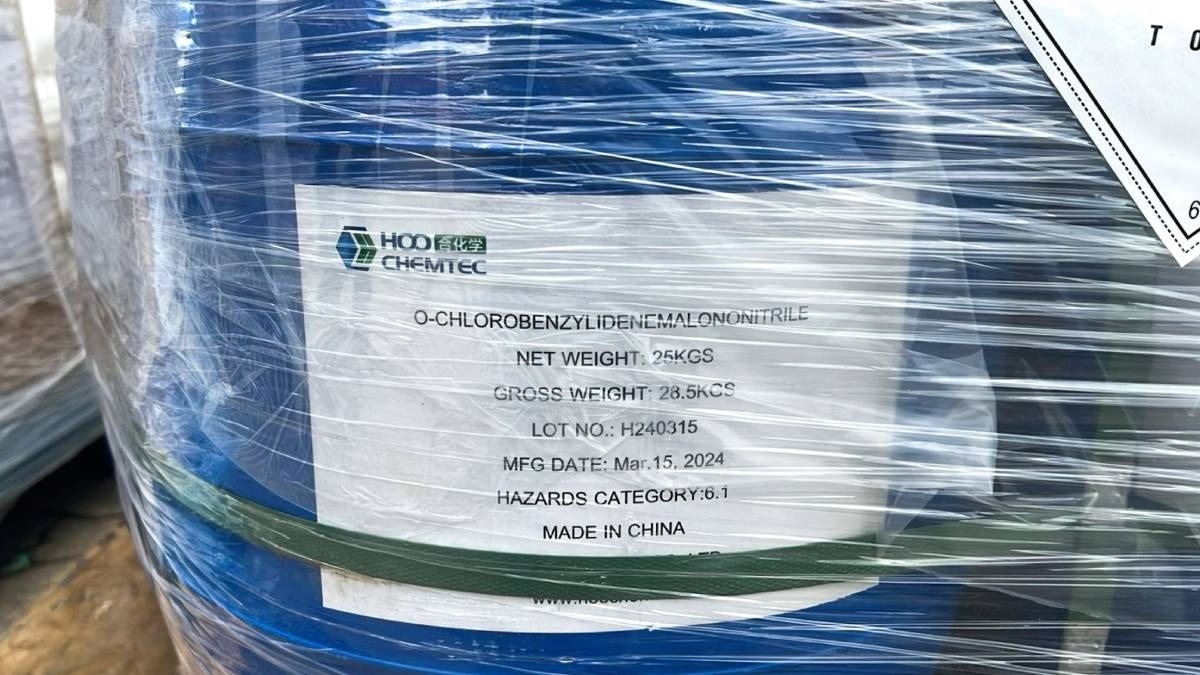China's Shadowy Supply Chains: Fears of Chemical Weapon Transfer to Pakistan's Balochistan Conflict

In early May, a routine check at the Kattupalli port in Tamil Nadu turned up a troubling find. Customs authorities, acting on intelligence inputs, intercepted a shipment of Ortho-Chloro Benzylidene Malononitrile (CS gas) from Chengdu Shichen Trading Company Ltd in China to Rohail Enterprises in Pakistan. The cargo, carried by the Hyundai Shanghai, was en route from Shanghai to Karachi. While CS gas is commonly used for riot control, its potential as a chemical weapon makes it a tightly regulated substance under international agreements like the Chemical Weapons Convention.
This incident has raised alarms about China's role in global proliferation networks. Historically, China has a track record of producing dual-use technologies—items that can serve both civilian and military purposes. Despite international regulations, Beijing has often been accused of sidestepping export controls. The seizure of CS gas is especially concerning given its potential use by Pakistani law enforcement against Baloch rebels, who have been a persistent thorn in the side of both Pakistan and China's joint economic ventures in the region.
The China-Pakistan Economic Corridor (CPEC), a flagship project under China's Belt and Road Initiative, has faced significant opposition in Balochistan. Local nationalist groups, resisting what they see as exploitation of their resources, have carried out numerous attacks against CPEC infrastructure. The possibility that China is supplying Pakistan with CS gas to suppress these rebels suggests a deeper, more troubling level of involvement in Balochistan's internal conflict.
This situation is part of a larger pattern of China's behavior in global trade, especially concerning dual-use goods. For years, China has been adept at bypassing international sanctions, supplying banned items to countries like Pakistan, North Korea, and Iran. This was highlighted in Germany's 2023 report from the Federal Office for the Protection of the Constitution, which noted that China plays a pivotal role in circumventing sanctions for these countries. Similarly, Austria's Directorate of State Security and Intelligence underscored China's central position in sourcing dual-use goods for Pakistan.
One high-profile case involved Ilya Kahn, a tri-national resident of the United States, who was arrested for exporting semiconductors to sanctioned Russian military-linked businesses through a network of companies in China. This underscores the extent to which China is embedded in global proliferation networks, acting both as a supplier and a conduit for banned technologies.
In April 2023, the U.S. imposed sanctions on three Chinese and Belarusian companies for allegedly supplying missile technology to Pakistan. China remains Pakistan's primary supplier of weapons and defense equipment, a relationship that has only deepened as both countries navigate international scrutiny and sanctions.
The global community is increasingly wary of China's activities. European and U.S. agencies are closely monitoring the trade in dual-use technologies, recognizing the potential for these goods to be diverted for military use. Reports from various intelligence agencies highlight a disturbing trend: China is not only supplying these goods but also creating complex networks to obscure the true end-users, making enforcement of international regulations exceedingly difficult.
The recent seizure at Kattupalli port is a stark reminder of the lengths to which China and Pakistan will go to pursue their strategic objectives. The covert supply of CS gas to Pakistan, intended for use against Baloch rebels, not only violates international norms but also exemplifies the dangerous intersection of economic ambitions and military strategies. As the global community continues to grapple with these challenges, the need for stringent enforcement of international regulations and greater transparency in global trade has never been more critical.


